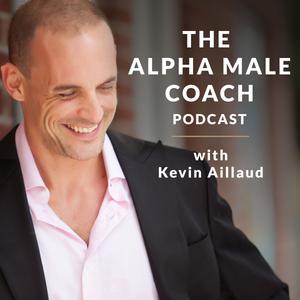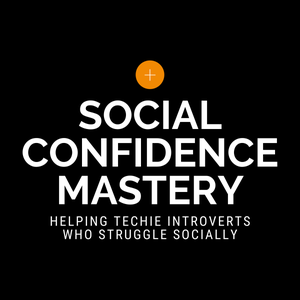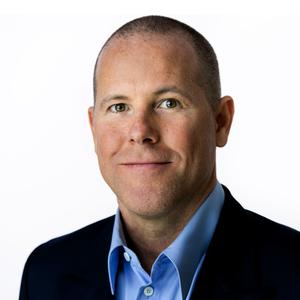
The Alpha Male Coach Podcast
Kevin Aillaud
Confidence Coaching for Men
- 44 minutes 20 secondsEpisode 307: The Alpha Male Coach Podcast
Brothers, today I want to give you a big-picture view of what this podcast has been about, where we've been, and why we've been here. Over the past six years, we've explored some of the deepest concepts around the mind, energy, and the nature of reality, all with the goal of elevating your alpha. Now, it's time to summarize it all, and let me tell you, it boils down to three main points.
First and foremost, this podcast has been about service. At its most obvious and superficial level, my goal has been to help you. It’s about simplifying complex ideas—whether it's mind management, self-mastery, or the frameworks we’ve explored like spiral dynamics, human design, and Krishnamurti’s work. My role has been to take all that complexity, all that information, and make it understandable and applicable for you. But here's the thing, brothers: while that service has been real and important, it's rooted in duality. There’s the assumption that I’m the teacher and you’re the student. It’s useful, but it’s just one layer, and it’s the most surface-level reason behind this podcast.
Now, let’s go a bit deeper. Beyond service, this podcast has been a personal journey for me. You've been with me, witnessing my own evolution, my growth. From the very first episode, I came to you with my own perspective—one that was built on the foundations of philosophy, religion, quantum mechanics, and more. But as we moved forward, you saw my mind evolve. You watched as I investigated new frameworks, learned new concepts, and questioned old beliefs. This podcast has been a platform for me to share my personal journey, and you've been a part of that every step of the way. For that, I am grateful. So, while I’ve been serving you, you’ve also been witnessing my transformation. It’s a journey we’ve taken together.
And finally, the deepest layer, the most subtle point, is that this podcast has been about the release of energy. Karma, brothers, means action, and everything we do is an expression of pent-up energy. This podcast, these teachings, these conversations—it’s all been a process of letting go, of releasing energy that had to come through. From the beginning of time, this was always meant to happen. It’s been part of the cosmic plan, part of the energy that flows through each of us. At its core, this podcast is an expression of that flow—moving through me, through you, and into the world.
So brothers, to wrap it up: the purpose of this podcast has been threefold. First, service—simplifying the mind and its complexities to help you on your journey. Second, my personal journey—an evolution you’ve been a witness to. And finally, the release of energy—because everything that’s happened here, from the very first episode to today, had to happen. It was always part of the plan.
Until next time, brothers, elevate your alpha.
1 October 2024, 2:14 am - 46 minutes 32 secondsEpisode 306: Skills vs. Systems
In this episode, we're diving deep into one of the key aspects of Human Design: the difference between skills and systems. Now, as many of you know, I’m a projector, and this really shapes how I’ve experienced life, especially when it comes to learning new things. I’ve spent years living in different countries, totally immersed in the culture, working hard to learn languages like Spanish and Chinese, and yet—I still don’t speak them fluently. But then, I see my friends who are generators, picking up these skills almost effortlessly in a fraction of the time. It used to frustrate me, but it all makes sense once you understand the Human Design framework.
Generators are built to master skills. They’re the doers. They have this natural energy for repetition, for practice, for honing in on a specific task until they perfect it. They’re like the chess pieces on a board—each with their unique strengths and abilities. But what about us projectors? Well, we don’t operate like that. While a generator might be able to dive into a skill and refine it, we’re here to see the big picture. Our gift lies in understanding the system behind that skill, in seeing how all the moving parts work together, and guiding others to their mastery.
I’ve experienced this over and over in my life. Take music, for example. I’ve tried to learn instruments like the piano and guitar. I could sit there and practice for hours, but no matter how much time I put in, I just couldn’t get past being average. But here’s the thing: I understand the system of music perfectly. I can read music like the back of my hand. I know the notes, the rhythms, the scales. I just can’t play them well. And the same thing happened in sports—like when I was a competitive shooter. I never ranked high in competitions, but I could teach people how to shoot, and they’d become champions. Why? Because I understood the system behind shooting, the strategies, the techniques.
This episode is about embracing that difference. As projectors, we’re not here to grind through skills and become masters of them ourselves. We’re here to guide. We’re here to teach. We’re here to see the big picture and help others reach their potential. It’s like the chessboard analogy: the generator pieces are focused on their individual moves, but we’re the player—we see the whole board and guide them to make the best moves.
But I’m not saying projectors can’t learn skills or that generators can’t master systems. What I’m saying is that we have different strengths, and when we lean into those strengths, we thrive. Projectors need to stop feeling like they have to keep up with the generator hustle. Likewise, generators can benefit from having a projector to guide them through the systems that govern their world.
Ultimately, it’s about celebrating our energetic differences. We’re all the same in essence—our essence is unity, vibration, light. But energetically, we’re all unique, and when we recognize that, we can better understand how to live in alignment with our true selves. So if you’re a generator, find yourself a projector to guide you. And if you’re a projector, embrace your role as the guide. Together, we elevate each other.
27 September 2024, 9:18 pm - 39 minutes 46 secondsEpisode 305: Compassion vs. Pity
In this episode, we take a deep dive into two critical concepts: compassion and pity—and why understanding the difference between them is essential for your spiritual journey. On the surface, these two ideas may seem similar. Both involve recognizing someone else's suffering and taking action, but the energy and vibration behind them are completely different. Brothers, this is where the real work begins.
Let’s break it down. Compassion comes from love, unity, and an understanding of the oneness of all beings. It recognizes that suffering is a projection of the mind—an illusion. When you see someone experiencing pain, you know it’s just a story they are telling themselves, just like the stories you tell yourself. Compassion isn’t about agreeing with the story; it’s about seeing the deeper truth. When you act out of compassion, you’re acting from a place of love. You help because you know that everything is connected, and by uplifting someone else, you uplift yourself. There’s no fear involved. It’s pure love. It's knowing that the person you’re helping is just another version of you, another aspect of the oneness we all share.
Now, contrast that with pity. Pity comes from fear. You see someone suffering, and your mind immediately projects onto them, thinking, “I don’t want that to be me.” Pity stems from the fear that you might end up like the person you're helping. So you act, but your action is driven by fear, not love. You believe in the illusion of their suffering, and by believing it, you reinforce it. It’s still action, but it's not coming from the highest place. And brothers, if you’re acting out of fear, you’re still trapped in the lower vibration of the third dimension. You're reacting to the illusion instead of rising above it.
This distinction is crucial, not just in how we interact with others, but also in how we treat ourselves. Are you practicing self-compassion or self-pity? When you’re in self-pity, you’re telling yourself a fear-based story, feeding into the illusion that you’re not where you need to be, or that you’re not enough. But when you practice self-compassion, you acknowledge where you are with love. You recognize that, yes, maybe you made a mistake, but that’s part of the process. It’s part of the illusion. There’s no fear in self-compassion, only love and growth.
Throughout this episode, I challenge you to examine the root of your actions. Are you acting from love or from fear? Are you truly in compassion, or are you coming from a place of pity? This is the deep work, brothers—the spiritual practice of elevating your vibration, of shifting from fear-based action to love-based action. It’s easy to think you're being compassionate, but if there’s any fear involved, you're still stuck in pity.
Remember, we are spiritual beings having a human experience, not the other way around. The world as we know it is not as it seems. It’s time to wake up, elevate your mind, and elevate your alpha. When you can act from a place of true compassion, both toward others and yourself, that’s when you break free from the illusion and step into your true power.
17 September 2024, 1:03 am - 48 minutes 16 secondsEpisode 304: What Matters?
Elevate Your Alpha: Embrace the Now and Forgiveness
In this transformative episode of Elevate Your Alpha, we delve into the importance of maintaining a high vibration and embracing the present moment. Our host emphasizes letting go of past regrets and the negative impact of holding onto self-judgment and resentment. By focusing on forgiveness and love, we can elevate our energy and lead a harmonious life.
This episode explores the teachings of Jesus and Buddha on forgiveness, love, and the impermanence of life. Jesus taught unconditional love and forgiveness, while Buddha highlighted the emptiness and impermanence of the external world. Both perspectives converge on the importance of maintaining a high vibration and living in the now.
We discuss the significance of monitoring our vibration through mindfulness and meditation, starting with a focus on the body’s sensations. This practice helps us stay attuned to our feelings, allowing us to let go of negative emotions quickly. By doing so, we prevent the external world from affecting our inner peace.
Practical examples, such as dealing with road rage, illustrate how being aware of our body's sensations can help us let go of agitation and maintain a state of peace. The episode also touches on the concept of death and the importance of facing it with acceptance and a high vibration. Whether one believes in reincarnation or other afterlife concepts, the key is to transition with a peaceful and loving energy.
Join us as we uncover universal truths that transcend religious boundaries and offer practical steps to live a more mindful, loving, and vibrant life. Whether it's overcoming buffering behaviors, dealing with daily stressors, or contemplating the inevitability of death, this episode provides profound insights to help you elevate your alpha and embrace the now.
Subscribe to The Alpha Male Coach Podcast to stay updated on future episodes where we continue to explore ways to elevate your life and energy. Until next time, keep your vibration high and elevate your alpha!
7 August 2024, 6:18 pm - 42 minutes 1 secondEpisode 303: Neutrality To Knowledge
Hey brothers, I want to dive deep into a concept that might sound counterintuitive at first: the idea that depression is actually an upgrade for the human species. I know it sounds crazy, but stick with me here. When we start to move from our conditioned beta state towards neutrality and beyond, we begin to pierce the shell of our ego, our "I-ness." This initial breakthrough can feel like entering a dark, cloudy, and rainy world where nothing matters, much like the downtrodden side of the meme where a person is slumped over and unhappy.
When you first confront the realization that nothing matters, it often leads to a state of depression. This isn't a bad thing. In fact, it's an important step in our evolution. Depression signals that our crisis monitoring system is lowering, helping us recognize that nothing, indeed, matters. This realization aligns with what mystics, saints, and sages have always known: everything is empty, a hologram, a dream state. We start to understand that our ego, our attachments, our possessions, and even our relationships don't really matter.
Many people are uncomfortable with this idea because it contrasts sharply with our conditioning, which tells us that our lives and identities are supremely important. But the truth is, nothing matters. And that's liberating. It's the beginning of moving from ignorance to knowledge, from ego to true self.
I know some coaches will tell you to strengthen your ego, to build a strong persona. And that's okay; it's not wrong. But if you want to move beyond the ego, to break through to the other side, you must let go of the idea that your ego matters. When you do, you’ll experience what’s on the other side of the meme: bliss, harmony, and love.
Moving from ignorance to knowledge is like returning to the Garden of Eden. The story goes that we lost our true knowledge when we ate from the Tree of Knowledge and became aware of our ego. But when we regain this knowledge, we understand that nothing matters, and we can embrace this truth joyfully. This understanding leads to liberation and, ultimately, to a state of nirvana or heaven on earth.
To know you’ve moved from ignorance to knowledge, look for that sense of bliss that isn’t tied to circumstances. It’s a bliss that comes from ego death, from truly understanding that nothing matters. This state can be reached through meditation, breathwork, plant medicine, or even listening to this podcast. When you get there, everything around you – the colors, the sounds, the mundane things – becomes vibrant, magical, and awe-inspiring. You merge with the world, experiencing its perfection and realizing that you are one with it.
Doctors and scientists know so little about the body, just as we know so little about the universe. The arrogance of claiming we fully understand either is a product of our ego. But when we let go of the "I," we see the body and the world as the magical, vibrant entities they truly are.
Brothers, if this resonates with you, come to the academy. It's one path among many, but it’s a path where we explore these truths together. Everything is impermanent, everything is in flux, and embracing that truth is key to your freedom. Until next week, elevate your alpha.
15 July 2024, 7:54 am - 46 minutes 26 secondsEpisode 302: Guideposts On The Path
Brothers, today I want to share a journey that transcends the surface of our daily struggles. This is not about acquiring more, but about transcending the very need to seek and cling. Our minds, if left unmanaged, lead us into cycles of suffering. They trick us into chasing pleasure and avoiding pain, keeping us trapped in a perpetual state of dissatisfaction.
Recognize the Source of Suffering
The first step on this journey is recognizing that our suffering is not caused by external circumstances but by our reactions to them. Life is not about the content we experience but the dualities we create—pleasure and pain, good and bad. This duality is an illusion created by our conditioned mind, which is always seeking pleasure and avoiding pain.
Step into Neutrality
By stepping into neutrality, separating thoughts from facts, we begin to see clearly. This is crucial, brothers. You must understand that your feelings are not dictated by the world around you but by your mind's interpretation of it. When you learn to separate your thoughts from facts, you gain control over your emotional responses. This is where true freedom begins.
Ask the Fundamental Question: Who Am I?
Once we achieve this state of neutrality, we delve deeper, asking the fundamental question: "Who am I?" This is not a mere intellectual exercise but a profound inquiry into the nature of the self. You are not your body, your mind, or the story you tell yourself. Everything is in a constant state of flux. The body, the mind, the story—all are impermanent. When we grasp this, we gain knowledge. And with this knowledge comes liberation.
Understand Impermanence
Impermanence is the key to understanding the nature of reality. The body you had yesterday is not the same body you have today. Everything changes, and nothing remains static. This knowledge of impermanence is what moves you from ignorance to enlightenment. It liberates you from the suffering caused by attachment and aversion.
Liberation Through Knowledge
Liberation is about recognizing the eternal and infinite nature of our true self. It's about understanding that while our individual experiences differ, at the core, we are all interconnected. This realization dissolves the boundaries of self and other, leading to compassion and unity. You see, brothers, we are all part of the same divine mind. The individual mind, with its fears and desires, is just a small part of this greater whole.
Commit to the Spiritual Journey
Commit to this spiritual journey, brothers. This is not a hobby or a side project but a lifestyle. It's about consistent practice, mindfulness, and self-awareness. Begin by acknowledging the dualities in your life and move towards awakening. Recognize that the only constant is change, and with this knowledge, you will find peace.
Embrace Mind Management
You must manage your mind, or it will manage you. Our minds are conditioned to avoid suffering and seek pleasure, creating a cycle of dissatisfaction. Through mind management and emotional ownership, we break this cycle. This is what I offer you, brothers—tools to manage your mind and take control of your emotional life.
Focus on Helping Others
As you advance on this path, your focus shifts from self-centered desires to helping others. The pleasure-pain cycle no longer dictates your actions. Instead, you strive to bring harmony, peace, and love to others. This is true liberation—acting from a place of compassion and unity rather than personal gain.
Live in Unity and Harmony
Together, we elevate our alpha, not through material gains or external validations, but by transcending the very need for them. This journey is about moving closer to truth, harmony, and love. So, let's look each other in the eye, recognize our shared essence, and support each other on this path to enlightenment.
Brothers, choose the spiritual journey. Commit to it fully. Begin by recognizing the dualities in your life, step into neutrality, and ask, "Who am I?" Embrace the knowledge of impermanence and move towards liberation. In doing so, we elevate our alpha. Until next week, elevate your alpha.
28 June 2024, 8:17 pm - 42 minutes 12 secondsEpisode 301: 3 Levels Of Understanding - The Remix
Brothers, the journey to true self-understanding is profound and multifaceted, spanning three distinct levels: devotional, intellectual, and actual understanding. Let’s explore each level deeply and clearly.
1. Devotional Understanding: This is where most people start, accepting knowledge from authorities without personal inquiry. Think of the flat Earth belief or following health guidelines without question. In terms of self-knowledge, many rely on religions or influential figures to define who they are. It’s effortless but superficial and highly prone to error.
2. Intellectual Understanding: This stage demands personal engagement, research, and critical thinking. Imagine Galileo challenging the flat Earth theory or an individual diving deep into the science behind health guidelines. For self-knowledge, this means actively exploring various paths and philosophies. It’s deeper than the devotional level but remains theoretical, forming an intellectual comprehension of the self.
3. Actual Understanding: Here, knowledge is gained through direct experience, fundamentally transforming one’s perception. Picture astronauts seeing Earth from space or someone experiencing the effects of a well-researched health practice. In self-knowledge, actual understanding comes from inner experiences—meditation, mindfulness, personal insights—that reveal the true self beyond intellectual constructs.
The Path to Self-Knowledge: Most people never ask, "Who am I?" They’re consumed by survival or distracted by trivial pursuits. Those who do ask this profound question are rare, and even fewer move beyond devotional understanding, often adhering to a religion or philosophy without deeper inquiry. For the few who seek intellectual understanding, there are many paths. The journey is unique, requiring perseverance and openness to different frameworks and philosophies. But intellectual comprehension isn’t the end. It must lead to actual understanding through direct experience.
The Actual Experience: True self-understanding is the ultimate goal, transcending intellectual theorizing and marked by personal experiences revealing one's essence. Historical spiritual figures like Buddha, Christ, and Krishna reached this level, but each seeker’s journey is intensely personal and unique.
The Effort and Commitment: Moving from intellectual to actual understanding demands dedicated effort and continuous practice, leading to inner transformation. It involves transcending suffering, ignorance, and superficial desires by cultivating wisdom and deep self-awareness.
My wish for you, brothers, is to find true peace and happiness through this profound journey of self-discovery. Move from devotional and intellectual understanding to the actual experience of knowing yourself. This path, though challenging, leads to the deepest fulfillment.
Elevate your alpha. Until next week, I love you, brothers.
14 June 2024, 2:56 pm - 42 minutes 15 secondsEpisode 300: 3 Levels Of Understanding
Alright, listen up, brothers. Today, I’m breaking down something crucial for your journey—whether it’s a literal trip from Portland to Seattle or your personal path to enlightenment and success. Imagine trusting someone like Kevin, a well-traveled guy, to guide you from Portland to Seattle. You might start with faith in his directions, but real understanding comes when you take the trip yourself. This is a metaphor for our spiritual and intellectual journeys.
There are three levels of understanding: devotional, intellectual, and experiential. Devotional understanding is when you put your faith in an authority—be it Christ, Buddha, or even Kevin’s travel directions. You believe because they said so. But here’s the thing: faith alone isn’t enough. You need to verify, to engage intellectually. Look at the map, cross-check the directions, gather insights from multiple sources. But don’t stop there.
The real transformation happens when you experience the journey. Get in the car, drive the route, face the challenges, and make it your own. This is where you truly understand, not just theoretically, but deeply and personally. And let’s be real—not everyone who starts this journey finishes it. Some get lost, some turn back, some settle along the way. But every experience, whether it leads you to Seattle or somewhere unexpected, is valuable and unique to you.
Now, here’s the call to action. I’m inviting you to enroll in the Academy. Why? Because this is where you move from intellectual and devotional understanding to actual experience. Join us for webinars, coaching calls, and community discussions. Engage with mentors, share your journey, learn from others. This is where you’ll become the best version of yourself—mastering your mind, emotions, and actions.
It’s about balance. Manifest your desires but also learn to surrender and go with the flow. Live a life of peace, harmony, joy, and love. This is what we’re here for, and this is what the Academy offers. Sign up for a consultation call—it’s an investment in your future, credited towards your time in the Academy.
So, brothers, take this step. Don’t just listen to my words—live them. Experience the path yourself. Join the Academy, and let’s walk this journey together. Your best self awaits. Be the Alpha.
7 June 2024, 4:44 am - 46 minutes 55 secondsEpisode 299: Anicca (Impermanence)
In this enlightening podcast episode, we journey through profound spiritual teachings to uncover the wisdom of impermanence and the intricacies of manifestation. Our host delves into the Buddhist concept of the five aggregates—form, sensation, perception, mental formations, and consciousness—highlighting their ever-changing nature and how this constant flux defines our existence. By recognizing the impermanence of these aggregates, listeners are invited to question the very essence of the self and understand how attachment to these transient components leads to suffering (dukkha).
We then explore the practice of observing life without judgment. Judgment is deeply tied to the ego, perpetuating suffering through desires and aversions. This segment emphasizes the importance of detaching from judgment and simply witnessing experiences as they unfold. By doing so, we reduce the grip of cravings and aversions, finding a path to minimize suffering. Our host draws a clear distinction between wisdom and manifestation, underscoring that while wisdom involves accepting impermanence, manifestation focuses on creating desired changes in one's life.
The episode also addresses the challenges and opportunities inherent in the manifestation process. Understanding that striving for goals can introduce a different form of suffering, our host provides practical insights on managing this suffering by bridging the gap between current and desired states. The discussion extends to the spiritual journey, touching upon reincarnation and the significance of our human experience. Whether or not one believes in reincarnation, the essence lies in making the most of our time as human beings, embracing the fullness of our journey.
Listeners are reminded of their divine nature as observers of life’s impermanence. The ultimate goal is liberation from suffering by recognizing oneself as the observer, detached from the ego and transient identities. This episode offers a balanced perspective on how to navigate the realms of wisdom and manifestation, encouraging a conscious and fulfilling approach to life.
Join us in this deep exploration of spiritual wisdom and practical guidance, as we learn to observe without judgment, embrace impermanence, and master the art of manifestation.
31 May 2024, 2:25 am - 42 minutes 43 secondsEpisode 298: Anatta (Egolessness)
Language shapes our perception of reality and keeps us within a limited framework. By constantly using the word "I", we reinforce the illusion of a separate self. Some Buddhist or Hindu monks avoid using "I", saying "your monastery" instead of "my monastery" to emphasize that everything belongs to everyone. This practice challenges the notion of ownership and self-identity.
Feelings, like thoughts, are patterns of conditioning. They are not who we truly are but rather responses shaped by our past experiences. Our goal in the academy is to liberate ourselves both consciously and unconsciously. Conscious liberation involves understanding our thought patterns, while unconscious liberation involves recognizing the processes we aren't fully aware of, like our heartbeat or breath. These processes are automatic and reflect a deeper level of existence that we want to be in touch with.
Suffering arises when we identify with our feelings and thoughts, thinking they belong to us. We crave good feelings and avoid bad ones, which keeps us trapped in a cycle of desire and aversion. To free ourselves, we must detach from these feelings and thoughts, recognizing them as temporary and conditioned.
Our sense of "I" is made up of five aggregates: the physical body and four mental states—cognition, recognition, sensation, and reaction. The body is ever-changing and not a permanent self. Similarly, our mental states are impermanent and influenced by our conditioning.
Cognition is the direct experience, the neutral opening of a window to the world. Recognition is the meaning we assign to these experiences. Sensation is the emotional response, and reaction is the action we take based on these feelings. None of these are the true self; they are just processes.
By observing these processes and recognizing their impermanence, we can begin to detach from the false sense of a permanent self. Changing habitual patterns, like waking up at a different time or using the opposite hand, helps us understand the depth of our conditioning when we are aware of the craving and aversion patterns.
Ultimately, wisdom comes from moving beyond intellectual understanding to experiential realization. By living the truth of impermanence and non-self, we can reduce suffering and elevate our awareness, leading to greater freedom and interconnectedness.
24 May 2024, 5:22 am - 37 minutes 24 secondsEpisode 297: Dukkha (Suffering)
Brothers, I want you to listen closely because what I'm about to share is something that can truly transform your life. It's a pattern I've seen over and over again, and it's critical to understand if you want to break free from suffering. Let’s talk about the four quadrants of attachment and how they govern our experience.
When you have what you want—money, relationships, status—you're attached. You fear losing these things. This fear leads to suffering. It's a desperate clinging, a hoarding mentality that controls you. You're afraid to lose your bank account, your job, your relationship. The fear of loss is ever-present.
Now, shift to the top-right quadrant. You want something but don’t have it. This desire, this craving, eats at you. You compare yourself to others, believing your life would be better if you had more money, a better job, a loving relationship. This constant comparison and craving create immense suffering.
Let's move to the bottom-left quadrant. Here, you have what you don't want. Maybe it’s a debt, a physical condition, or a difficult relationship. You resist these realities, and this resistance breeds anger and a victim mentality. You think, "My life would be better if I didn’t have this." This aversion to what is causes deep suffering.
Finally, the bottom-right quadrant: you don't have something, and you don't want it. You're afraid of getting what you don't want—disease, financial ruin, a bad relationship. This fear of potential future problems keeps you in a state of anxiety.
Here’s the key, brothers. We've been conditioned to focus externally, to see everything through the lens of these quadrants. But there's a way out. The solution is to shift our focus internally. Understand that your thoughts and senses are external stimuli. By redirecting your consciousness inward, you can break free from these patterns of attachment.
In the academy, we teach cognitive mastery and emotional ownership to help you make this shift. By embracing the present moment and accepting reality without resistance, you can end your suffering. Elevate your alpha by focusing internally, brothers. This is the path to true freedom and peace. Until next week, elevate your alpha.
15 May 2024, 8:10 pm - More Episodes? Get the App
Your feedback is valuable to us. Should you encounter any bugs, glitches, lack of functionality or other problems, please email us on [email protected] or join Moon.FM Telegram Group where you can talk directly to the dev team who are happy to answer any queries.
 Social Confidence Mastery
Social Confidence Mastery
 Global Seducer Quickie Podcast
Global Seducer Quickie Podcast
 Coach Corey Wayne
Coach Corey Wayne
 Alpha Male Strategies
Alpha Male Strategies
 A Piece Of The Attraction
A Piece Of The Attraction
 Write Your Legend
Write Your Legend